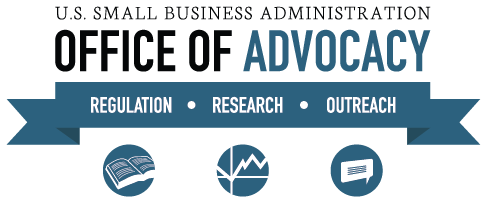
The legislative sessions this year have been far from normal to say the least. Some actions were undertaken earlier this year before the lockdowns occurred. While much is now on hold, it is useful to catch up on what was done or planned.
My main advocacy blog was posted May 3, 2020: History Advocacy Advisory Alert. It was geared towards the federal level. There is an annual conference in Washington by the American Alliance of Museums (AAM) in partnership with the American Association of State and Local History (AASLH). Then there was the special Covid-19 funding advocacy. The annual day is great for those who participate. My recommendation was and is that more would participate if there were local advocacy days in each Congressional office one week prior to the national meeting. The same considerations apply to state advocacy efforts.
The following examples are not meant to be complete. They reflect what I am aware of based on the newsletters I receive.
Maine Advocacy
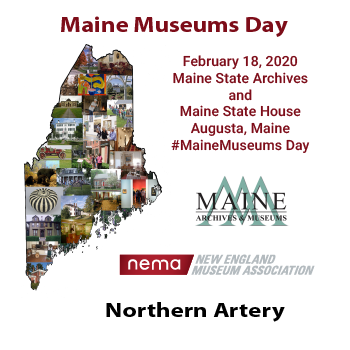
Speak up for your museum, meet your legislators, and help us celebrate and advocate for all museums! Join the Maine Archives & Museums and NEMA for an informal reception in the Hall of Flags, show off your museum’s unique resources and achievements, and hear from government and museum representatives about the importance of public support for Maine’s cultural treasures. We encourage museums, museum staff, students, and supporters across the state to attend. This event is free.
The day’s schedule will be as follows:
11am-noon Maine State Archives – Advocacy Training – discuss current issues and practice your advocacy story with representatives from the New England Museum Association.
Noon-2pm Maine State House – Meet Your Legislators – Make appointments to meet with your legislators to discuss the issues relevant to your organization.
2pm-4pm Hall of Flags, Maine State House – Reception – Exhibit your organization (register here at no cost to members of MAM and NEMA to reserve table space) and/or meet with folks from other collecting institutions while enjoying refreshments and inspiring speakers.
One question I would ask is “What are the specific actions being requested of the legislators?” In other words, what if any new legislation is being suggested or what existing legislation is being supported or what funding levels are being requested? The odds are these types of issues are the same across state lines with some changes based on the organizational structure in each state.
Massachusetts Advocacy
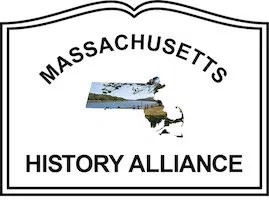
Over the past few I years I have attended and written about the annual conference of the Massachusetts History Alliance (History Advocacy: Lessons from the Massachusetts History Alliance Conference). One focus has been its fledgling efforts to develop an advocacy program. To the best of my knowledge, the organization has not reached the point where it has a state advocacy day for history organizations or participates in one for museums. If that information is not correct, please let me know. It looks like I will not be able to catch-up on recent events at the proposed conference for June 1 this year. Instead, I have copied some relevant information from the Alliance’s website.
Advocacy for Non-Profits: the rules
We are frequently asked this question: We are a non-profit, doesn’t that mean we cannot lobby for our interests at the Statehouse or to our Town? What are the rules that govern these activities?
The MHA Advocacy Team has done the research and reports out:
- Advocacy is not the same as lobbying. Lobbying is one form of advocacy that often involves persuading legislators to enact or vote down a bill.
- Lobbying can be undertaken by tax-exempt organizations, with no risk to their 501(c)3 status, as long as it is not a substantial part of their organization’s activities.
- “Substantial” is generally considered to be more than 5% of the organization’s total activities or more than 20% of its expenditures.
- Individuals advocating on their own and not as representatives of tax-exempt organizations face no penalties.
Advocacy efforts that do not present a risk to an organization’s tax-exempt status include:
- Educating policymakers and the public about broad social issues
- Organizing communities, encouraging people to vote and educating voters about candidate positions.
- Attempts to make an administrative agency of the government change its policies, rules or regulations should be presented as educational efforts, to avoid being considered lobbying.
Under Construction
MHA has advocacy priorities in three areas: advocacy for public history to the legislature, advocacy to the public history field, and advocacy for public history to the general public.
- The MHA advocates for legislative initiatives that fund local and public history efforts in the Commonwealth. This includes the provision of opportunities that make it easier for smaller organizations to survive, such as grant opportunities or tax credits.
- The MHA promotes the message that a vibrant history community is good for local businesses and contributes to our state’s economic vitality.
- The MHA advances the idea that an awareness of local and public history is an essential component of civic engagement.
- The MHA endorses the funding of regional networks and collaborative efforts that positively impact local and public history in Massachusetts. It encourages the development of greater communication between the numerous and distinct history organizations across the state.
- The MHA supports entities that encourage the preservation of historic buildings, objects and documents.
- The MHA advocates for the continued funding of its Annual Conference.
All these objectives are worthy. Now notice the difference. Three are funding-based while two are conceptual and one may be geared towards specific preservation-related matters. One presumes that behind the three funding objectives are specific legislative actions the History Alliance wants the legislators to take. By contrast two others might involve having events or inviting legislators to attend them. Preservation is separate category and in fact I attended a preservation advocacy day in New York which will be the subject of its own blog.
New York Advocacy
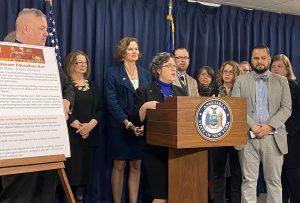
Advocacy in New York is spearheaded by the Museum Association of New York (MANY). The organization has a lobbyist on retainer. It is a museum organization and many of the members are history organizations. It is very active in the national advocacy by AAM. Below is a newsletter from February when MANY expected to have its annual conference at the end of March. While that did not happen, readers should note the advocacy actions planned in conjunction with the conference. Such actions can be replicated in other states.
Making the Case for New York’s Museums
If you’ve attended a MANY program in the past couple of years, you have heard me ask you to reach out to your local, state, and federal legislators to let them know what resources you need to serve our communities, preserve and share collections, and sustain and grow the unique power that museums have to transform lives. I know some of us find it difficult to speak up and get loud enough to make a difference. Many museum professionals identify as introverts, while others may be uncomfortable speaking with people they don’t know.
One member of our museum community, the Museum of Chinese in America (MOCA) has just experienced a disaster that we all dread— the potential loss of a collection to fire. MOCA’s social media campaigns, calls to city officials, outreach to emergency management offices, and help from members of the community made a difference. Their announcement on Thursday, February 27 that the building on 70 Mulberry Street that housed the collection will be hand-demolished and that most of the collection remaining will be salvaged will help them continue to tell the nationally significant stories embodied in the collections.
At MANY’s annual conference in Albany on Monday, March 30th at 1:00, a group of museum professionals will share how communities and museums responded to the impact of Hurricanes Sandy, Irene, and Andrew and how shared exhibitions and programming effected change in their communities. Coming together, speaking out, and communicating our needs to our representatives is how we will effect positive change for New York’s Museums.
In Albany we have been working hard with NY State Senator Serrano and Assembly Member Fahy to advance the Museum Education Act A.9695 (Fahy)/S.6819 (Serrano). I am pleased to report that it has passed out of the Tourism Committee in the Assembly and the Cultural Affairs Committee in the Senate but we need you to step in, speak up and get loud now. We have received an outpouring of support in both houses, but we need you to tell your legislators how your museum does essential work in your community and ask them for their support now. Please send an email and follow up with a phone call to your State Senators and Assembly Members as soon as possible to ask for their support to include the Museum Education Act (A.9695 (Fahy)/S.6819 (Serrano)) in the one house budget bills at $3.5M. You can find your Assembly Member’s contact information by clicking here and your New York State Senator by clicking here and MANY’s memo of support here. Please feel free to borrow freely from this email and our letter of support when contacting your legislators. There is more advocacy information about the MEA on our website: https://nysmuseums.org/Advocacy.
If you are planning to join us at our 2020 annual conference in Albany (it is going to be amazing), please invite your legislators to join us at the “Power of Partnership” 2020 Annual Conference Opening Reception on Sunday, March 29th in The Rotunda of the New York State Education Department Building from 4:30 – 6:30 PM. You can find a pdf of the invitation here. With budget negotiations underway, I am sure they will appreciate a break and a chance to speak with and enjoy refreshments with their constituents.
With thanks and hopes to see you in Albany!
Here you see the opportunities available when having a state conference at the state capitol when the legislature is in session. Obviously the coronavirus will only amplify the need for dialogue with the legislative and executive branches.
Rhode Island Advocacy
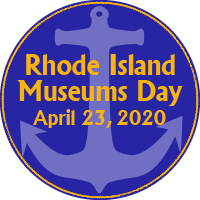
Speak up for your museum and make the case for all museums to your elected officials. Perfect your elevator speech and learn the basics of advocating for the field that you love.
Enjoy light refreshments and the company of your colleagues while we celebrate the contributions of Rhode Island’s vibrant museum community.
Museums large and small throughout the state, join the fun and show your support!
Agenda
Advocacy Training: 11 am – Noon, State House Library
Brown-bag Networking Lunch: Noon – 1 pm, State House Library
Exhibit table set-up: 12:30-1:30 pm, Rotunda
Reception, speaking program, and refreshments: 2-4 pm, Rotunda
Legislator encounters: 3:15-4:15 pm, House & Senate chambers
You may notice some similarities between and the Maine and Rhode Island programs. That is probably due to the New England Museum Association (NEMA)’s involvement in both instances. It’s big on the “elevator speech” as I wrote about last year (Massachusetts History Alliance conference).
On a personal level, I can say my own advocacy efforts for New York State to create a Freedom Bicentennial Commission to recognize the anniversary of the legal end of slavery in New York is on halt. The legislation has been written and I last met with the State Senate staff at the end of February about the proposal being made this session. I have not pursued the matter since then and will wait to next year.


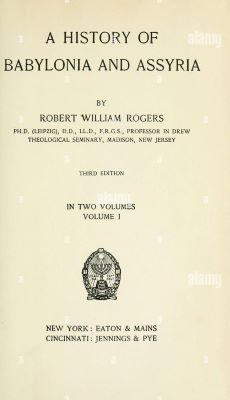
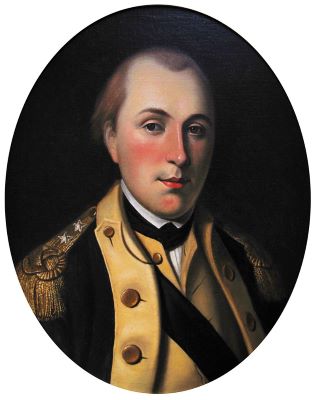
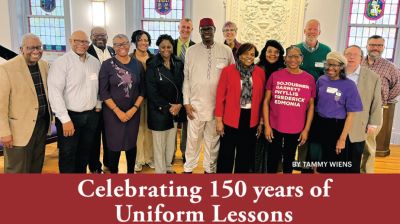

One thought on “State History Advocacy: A Report from the Frontlines”
Comments are closed.